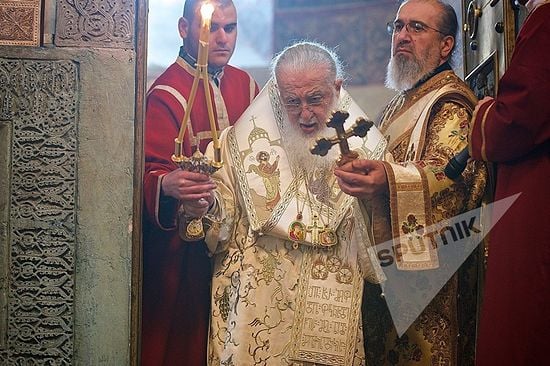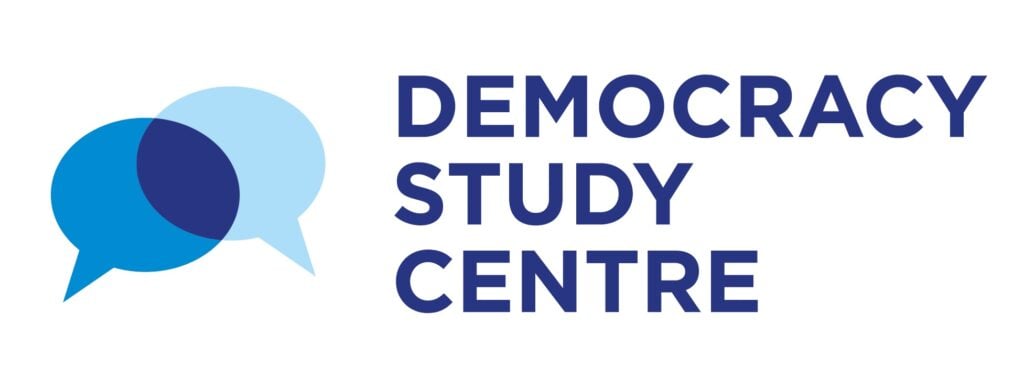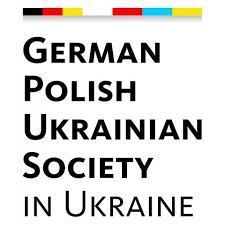By Tamar Chapidze and Andreas Umland
Over the last two decades, Georgia and Ukraine have become close geopolitical allies vis-à-vis both Russia and the West. In 1997, Georgia, Ukraine, Azerbaijan and Moldova created between themselves a multilateral consultative forum that, in 2001, was upgraded into the Organization for Democracy and Economic Development, better known under the acronym GUAM. With the 2003 Rose Revolution and 2004 Orange Revolution, Georgia and Ukraine left their – narrowly understood – “post-Soviet” trajectories of political and economic development, and took instead resolutely pro-Western paths. In spring 2008, Georgia and Ukraine applied together for NATO membership, at the alliance’s then summit in Bucharest, and received official accession perspectives, yet no Membership Action Plans.
In summer 2008, then President Viktor Yushchenko travelled to Tbilisi, during the Russian-Georgian war, to demonstrate Ukraine’s support for Georgia. Soon after the five-day war, Kyiv and Tbilisi both signed charters of strategic partnership with Washington. In 2009, Ukraine and Georgia joined, together with Azerbaijan, Armenia, Moldova and Belarus, the EU’s Eastern Partnership program. In summer 2014, Georgia, Ukraine and Moldova ratified especially far-reaching Association Agreements with Brussels.
Since spring 2014, Georgians have, as a nation and individually, helped Ukrainians in a myriad of ways in their violent confrontation with Russia. A number of Georgian politicians took, over the last five years, high level positions in various relevant Ukrainian state offices, at Kyiv and Odesa. People-to-people contacts too are getting stronger and mutual trips of citizens of Ukraine and Georgia to the other country are, since 1st March 2019, possible, on the basis of national ID-cards (and not only travel passports, as had been the case before).
Clouds on the Sky
Georgia’s and Ukraine’s recent common history and challenges have thus, so it would seem, created a broad and firm basis for the two countries’ special relationship. However, some recent religious affairs are raising the question of how far Georgia’s political support eventually goes, whether it will be strong enough to overcome Russian pressure, and to which degree the relations between the two nations will keep on deepening. Such doubts have appeared as the Georgian government has, so far, abstained from officially welcoming and supporting the recently obtained autocephaly of the Orthodox Church of Ukraine.
The main reason of the silence of Georgia’s officials on this issue is be found within the Georgian Orthodox Church that is not rushing to take an official position with regard to the status of Ukraine’s recently established united Orthodox Church. The last 2018 meeting of the Holy Synod on 27 December did consider the question of Ukrainian autocephaly, yet postponed the Church’s official verdict on the issue. “The Church of Georgia will make a decision relating to Ukraine at the next Holy Synod meeting, as it was promised,” Michael Botkoveli, Secretary of the Patriarch of Georgia announced.
A January 2019 visit of a high representative of the Constantinople Patriarchate to Tbilisi again raised the question about the Georgian Orthodox Church’s recognition of Ukraine’s. Yet, the meeting between the Ecumenical Patriarch’s emissary and the Georgian Church’s leaders did not lead to any clear announcements. The visit was instead presented as having been only made to inform the Georgian Orthodox Church about details of the Ecumenical Patriarch’s resolution to grant autocephaly to Ukraine’s new national Orthodox Church and “not to put any pressure or impose its opinion,” on the Georgian Church. Metropolitan Emanuel merely stated that the “Catholicos-Patriarch of Georgia has the wisdom to make the proper decision.”
The official position of the Georgian Patriarchate thus, so far, remains the same as before the Ecumenical Patriarchate’s handing over of a so-called Tomos (literally: small book) of Autocephaly to the Orthodox Church of Ukraine in January 2019. The web page of the Georgian Patriarchate said in October 2018, and still says today that this decision has “caused tension between Constantinople and Russia. Until the Patriarchate of Constantinople and Patriarchate of Russia confirm their respective final official decisions, the Patriarchate of Georgia will forbear to give its assessment of the situation.”
Reasons for Tbilisi’s Hesitant Stance
In fact, it is not that surprising that Georgia’s Orthodox Church is dragging its feats, as opinions, in the Church’s Synod, on this issue differ widely. Some Georgian Orthodox hierarchs openly support Ukrainian autocephaly. “The Ukrainian nation of 40 million people deserves its independence,” said Metropolitan Peter Tsaava of Chkondidi, in late December 2018, hoping that Georgia will choose to stand on the side of the truth and rejoice at Ukrainian autocephaly.
Bishop Iakob, on the other side, declared, in late January 2019, that “we should not get involved in religious war, we should not think about only Ukraine, but also about Abkhazia. I’m thinking about my country first.” Iakob and likeminded Georgian bishops believe that Georgia should, in this matter, behave cautiously because of a burning Georgian domestic issue. They argue that, if Georgia’s Church recognizes Ukrainian autocephaly, the Moscow Patriarchate of the Russian Orthodox Church could, in response, recognize the independence of the Abkhaz Orthodox Church and thus help its separation from Georgia’s.
Since 1993, Abkhazia has been de facto a satellite of Russia, and there has been no relevant Georgian military presence, on the territory controlled by the Moscow-supported separatist regime, since then. In August 2008, the Kremlin put regular troops into Abkhazia and officially recognized its “independence.” The Black Sea region is, however, not really independent, but a Russian protectorate partly functioning autonomously, partly ruled from Moscow. Notwithstanding Tbilisi’s lacking control of the separatist area, the Georgian Orthodox Church continues to claim Abkhazia as its canonical territory, and fears the emergence of a Moscow-recognized separate Orthodox church there.
Responding to Tbilisi’s nervousness about the Moscow’s possible recognition of Abkhazian autocephaly, the theologian Giorgi Tiginashvili maintains that it is shameful for the Georgian Orthodox Church to not support Ukrainian autocephaly. He argues that the Moscow Patriarchy does not have any rights to recognize the autocephaly of an Abkhazian Orthodox church: “The argument that Russia will encourage separatism in terms of ecclesiastical turmoil is just ridiculous, [because] this has already been done. It [Russia] has a Bishop and around fifteen clerics who seek to spread anti-Georgian narratives and disinformation.”
When the Ukrainian Tomos became a publicly discussed issue in Georgia, some members of the Georgian Orthodox Church addressed the Holy Synod with a petition in support of autocephaly for Ukraine’s united Orthodox Church. Some even gathered, in January 2019, to protest the Church’s timid position, in front of the Georgian Patriarchate’s building, with placards stating: “Our support to the Ukrainian nation.” Georgian governmental representatives have, in contrast, abstained from publicly commenting on the issue noting that it is of concern to the Tbilisi Patriarchate. “I would like to state clearly that the Georgian Orthodox Church is reviewing this question. Considering the canonical processes, the position regarding this issue should first be determined by the Orthodox Church of Georgia. As for the state, it does not interfere with the Church’s affairs,” Minister of Foreign Affairs Zalkaniani said.
On 1st February 2019, a high representative of the Moscow Patriarchate, Metropolitan Ilarion Alfeyev, warned the Georgian hierarchs: “I cannot imagine the Georgian Orthodox Church recognizing the autocephaly of the so-called Ukrainian Orthodox Church. Most of the clerics of the Georgian Patriarchate are very well aware of the ecclesiastical reality and the serious consequences of such a decision. There are young bishops who are in open opposition against the Catholicos-Patriarch Ilia II calling upon the Patriarch to recognize the so-called Autocephaly, but I’m sure it will not happen.” This statement was made when the Georgian Patriarchate had sent its representatives to Russia to congratulate Russian Patriarch Kirill on the 10th anniversary of his intronization. In a statement devoted to the anniversary of Patriarch Kirill’s enthronement, Russian President Vladimir Putin warned those going against the Russian Orthodox Church – a message obviously delivered with the issue of Ukrainian autocephaly in mind.
In response to Ilarion’s open warnings towards Georgia, the Georgian Patriarchate explained that the Georgian Church has always tried to take positions not on political grounds, but on the basis of ecclesiastical law. “At a time when, in the Tskhinvali [South Ossetia] region on a Russian military base the construction of a church is ongoing without any negotiation with us, and in Abkhazia the clerics [under] the Russian Church conduct non-canonic liturgies, the ambiguity of his statement sounds threatening,” the Georgian Patriarchate complained in early February. “We are guided by principle in the current situation, in that capacity, we take care of Orthodox unity; to ease tensions, we believe, is the responsibility of all Churches,” says the webpage of the Georgian Patriarchate.
An official representative of Georgian Patriarchate, Metropolitan Shio, has rejected accusations that the Georgian Patriarchate is under the influence of Russian Orthodox Church. Still, some believe that many hierarchs of the Georgian Orthodox Church are behaving the way they do not only because of the Abkhazian issue, but also because they are pro-Russian. Above-mentioned theologian Tiginashvili claimed, in early January 2019, that “the majority of the Holy Synod of Georgia is Russophile. They are linked to Russia via private contacts, previous educational, living experience, etc.”
Political Implications
If that were indeed the case, this could create a lasting schism between the two otherwise multifariously cooperating post-Soviet states. Georgia and Ukraine have recently become closer and closer – out of both, accumulating political necessity and increasing mutual sympathy. Yet, now a – for many Ukrainians – important question is in the room: Will the Georgian Orthodox Church, as one of humanity’s oldest Christian churches, come forward to support Ukrainian autocephaly or not? Many Georgian hierarchs may prefer to handle this issue as a purely ecclesiastical challenge.
Yet, its outcome has also a political and even geopolitical dimension. It will have repercussions for Ukrainian-Georgian relations, in their entirety. Most Georgians see their own national church as a (or even the) prime epitome of Georgianness. Similarly, most Ukrainians – even many non-Orthodox and non-religious – regard an autocephalic church as a critical expression of the uniqueness, freedom and independence of their nation. Since the beginning of the Russian-Ukrainian war in 2014, the dominant position of the Ukrainian Orthodox Church under the Moscow Patriarchy among Ukraine’s four major Christian churches has become more and more anachronistic.
The unity of Russian and Ukrainian Orthodoxy, to be sure, might have been possible to preserve, had the Moscow Patriarchate’s hierarchs taken a clearly and officially critical approach towards Russia’s covert military invasion into Ukraine since 2014. Yet, neither Metropolitan Kirill nor any other high representative of the Russian Orthodox Church appear to have done or said anything noteworthy – as, arguably, as Christians they should have – to substantively condemn or moderate the Kremlin’s aggressiveness. The origins of Eastern Orthodoxy’s schism lie thus neither in Kyiv nor in Constantinople, but in Moscow. It would be sad, if Russia’s war against Ukraine and the subsequent deep split in eastern Slavic Christianity will also spoil the otherwise very close relations between Ukraine and Georgia.
This article is an outcome of a project within the 2018-2019 Democracy Study Center training program of the German-Polish-Ukrainian Society and European Ukrainian Youth Policy Center, supported by the Federal Foreign Office of Germany.
TAMAR CHAPIDZE is an Executive Director of the Tbilisi-based NGO Civil Development and Research Institute, and a 2018-2019 Scholar of the Democracy Study Center in Kyiv, Ukraine.
ANDREAS UMLAND is a Senior Fellow of the Democracy Study Center in Kyiv, Nonresident Fellow of the Institute of International Relations in Prague, and General Editor of the book series “Soviet and Post-Soviet Politics and Society.”

